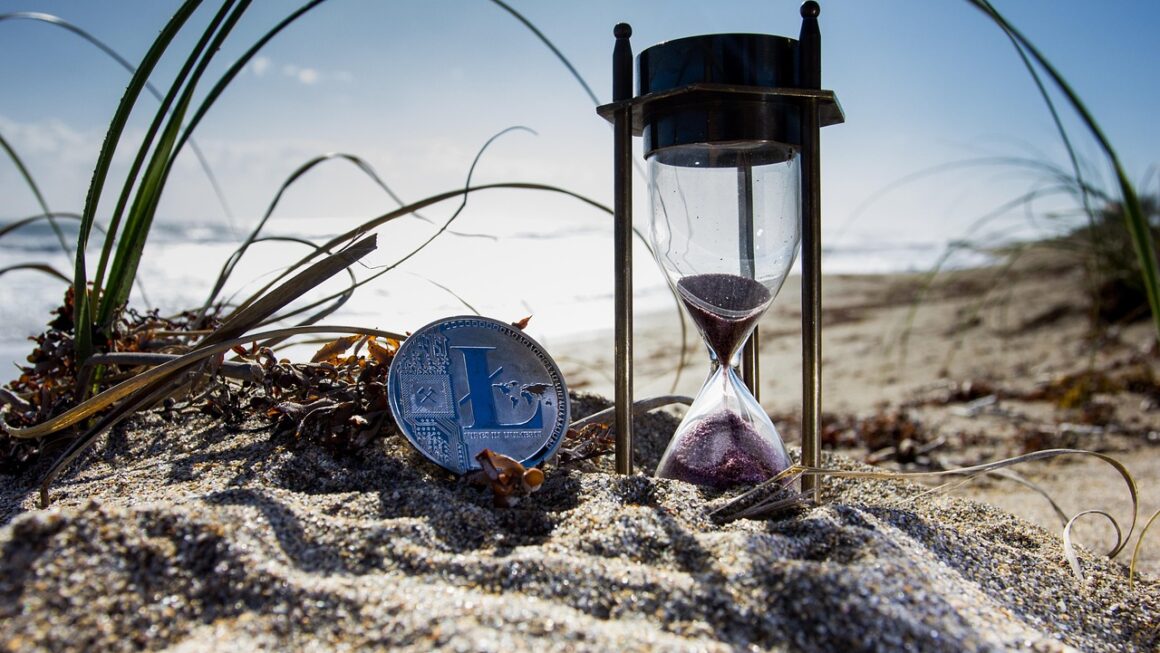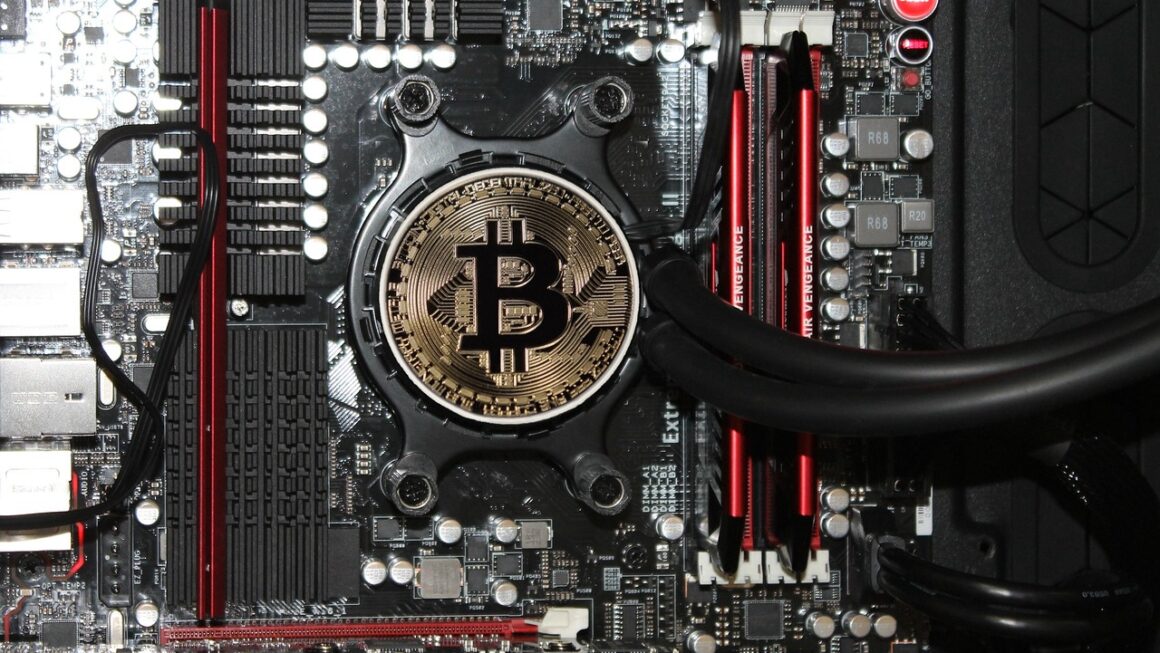zk-Rollups, a Layer-2 scaling solution for Ethereum, are rapidly gaining traction as a viable way to drastically improve transaction speeds and reduce gas fees. By bundling numerous transactions off-chain and submitting only a cryptographic proof (SNARK or STARK) to the main Ethereum chain, zk-Rollups offer a compelling pathway to scaling Ethereum and bringing decentralized applications (dApps) to a wider audience. This blog post will delve into the intricacies of zk-Rollups, exploring their mechanism, advantages, and potential future impact on the blockchain landscape.
Understanding Layer-2 Scaling Solutions
The Need for Scaling
Ethereum, while a groundbreaking platform for decentralized applications, faces significant scalability challenges. Its throughput, measured in transactions per second (TPS), is limited, leading to network congestion and high transaction fees, especially during periods of high demand. This restricts the usability of dApps and makes them inaccessible for many users. Layer-2 scaling solutions aim to address this by processing transactions off the main Ethereum chain, thereby alleviating congestion and lowering costs.
What are zk-Rollups?
zk-Rollups (Zero-Knowledge Rollups) are a type of Layer-2 scaling solution that bundles hundreds or even thousands of transactions into a single batch. This batch is processed off-chain, and only a succinct cryptographic proof, known as a ZK-SNARK (Zero-Knowledge Succinct Non-Interactive Argument of Knowledge) or ZK-STARK (Zero-Knowledge Scalable Transparent Argument of Knowledge), representing the validity of all the transactions within the batch, is submitted to the Ethereum mainnet. Because only this compressed proof and minimal on-chain data are required, gas costs are significantly reduced.
- Key Features:
Off-chain computation: Most transaction processing occurs off the main Ethereum chain.
On-chain data availability: Transaction data is typically posted on-chain, ensuring data availability. This is a key characteristic that distinguishes zk-Rollups from Validium.
Cryptographic proofs (SNARKs/STARKs): Zero-knowledge proofs guarantee the validity of the off-chain computation.
Increased TPS: Dramatically improves the number of transactions processed per second compared to the main Ethereum chain.
How zk-Rollups Work: A Deep Dive
Transaction Batching
The process begins with users initiating transactions, which are then collected and bundled into batches by a zk-Rollup operator. This operator is responsible for processing these transactions off-chain.
Off-Chain Computation and State Updates
The zk-Rollup operator executes the transactions in the batch and updates the state of the Rollup chain. This process involves complex mathematical calculations to ensure the integrity of the transactions.
Generation of ZK-SNARK or ZK-STARK Proofs
Crucially, the operator then generates a zero-knowledge proof (either a SNARK or STARK) that cryptographically verifies the correctness of the off-chain computation. This proof acts as a summary of all the transactions in the batch and their impact on the Rollup state.
Submission to the Ethereum Mainnet
The operator then submits the proof, along with a small amount of transaction data needed for state reconstruction, to a smart contract on the Ethereum mainnet. This smart contract verifies the proof, ensuring that the transactions were processed correctly. Once the proof is verified, the state of the zk-Rollup is considered to be updated on the mainnet.
- Practical Example: Imagine a zk-Rollup handling 1,000 transactions. Instead of submitting each transaction individually to Ethereum, which would cost a significant amount of gas, the zk-Rollup operator computes all 1,000 transactions off-chain and generates a single proof. This proof is then submitted to Ethereum, costing only a fraction of the gas compared to processing each transaction individually.
Advantages of zk-Rollups
Scalability Improvements
zk-Rollups significantly increase Ethereum’s transaction throughput by processing transactions off-chain. This allows for a much higher TPS compared to the mainnet, making dApps more scalable and usable.
Reduced Gas Fees
Since only a small proof is submitted to the mainnet, gas costs are substantially reduced. This makes transactions on zk-Rollups much cheaper than on Ethereum, attracting users who are priced out of using dApps on the mainnet.
Enhanced Security
zk-Rollups inherit the security of the Ethereum mainnet. Because the validity of transactions is cryptographically proven, and the smart contract on Ethereum verifies the proof, the transactions on the zk-Rollup are as secure as those on the mainnet.
Fast Finality
zk-Rollups offer relatively fast finality. Once the proof is verified on the Ethereum mainnet, the transactions are considered final, providing users with a high degree of certainty.
- Benefit Summary:
Increased transaction throughput.
Significantly lower transaction fees.
Inherited security from Ethereum.
Faster transaction finality.
* Improved user experience.
Challenges and Considerations
Computational Complexity
Generating zk-SNARKs and zk-STARKs is computationally intensive, requiring specialized hardware and expertise. This can be a barrier to entry for developers and operators.
Reimagining Sanity: Work-Life Harmony, Not Just Balance
Trusted Setup (for SNARKs)
Some zk-SNARK implementations require a trusted setup, which involves generating cryptographic parameters that must be kept secret. If these parameters are compromised, the security of the zk-Rollup could be at risk. ZK-STARKs do not require this trusted setup and are considered more secure in that regard.
EVM Compatibility
While some zk-Rollup solutions are working towards EVM (Ethereum Virtual Machine) compatibility, it’s a complex process. Achieving full EVM compatibility will make it easier for existing dApps to migrate to zk-Rollups.
Data Availability
While most zk-Rollups ensure data availability by posting transaction data on-chain, variations like Validium do not. This can impact the level of trust and potential censorship resistance.
- Actionable Takeaway: Before choosing a zk-Rollup solution, carefully consider the trade-offs between computational complexity, trusted setup requirements (if any), EVM compatibility, and data availability.
zk-Rollups in Practice: Examples and Use Cases
Payment Applications
zk-Rollups are well-suited for payment applications, where high transaction throughput and low fees are crucial. They can enable fast and affordable payments for everyday transactions.
Decentralized Exchanges (DEXs)
DEXs can benefit greatly from zk-Rollups by improving trading speeds and reducing gas fees, making them more competitive with centralized exchanges. Projects like Loopring are leveraging zk-Rollups to offer a fast and efficient decentralized trading experience.
Gaming
zk-Rollups can power blockchain-based games by enabling fast and cheap in-game transactions, improving the user experience and making these games more appealing to a wider audience.
Supply Chain Management
The ability to process a large number of transactions quickly and securely makes zk-Rollups a valuable tool for supply chain management applications, where tracking goods and verifying data integrity are essential.
- Specific Example: Loopring, a decentralized exchange protocol, utilizes zk-Rollups to enable high-speed, low-cost trading. By leveraging zk-Rollups, Loopring can process thousands of trades per second with minimal gas fees, providing a superior trading experience compared to DEXs operating solely on the Ethereum mainnet.
Conclusion
zk-Rollups represent a significant step forward in scaling Ethereum and bringing the benefits of blockchain technology to a wider audience. By bundling transactions off-chain and submitting only a cryptographic proof to the mainnet, zk-Rollups offer a compelling solution for increasing transaction throughput and reducing gas fees. While challenges remain, ongoing development and innovation in this space promise to unlock the full potential of zk-Rollups and pave the way for a more scalable and accessible decentralized future. As Ethereum continues to evolve, zk-Rollups are poised to play a crucial role in realizing its vision of a world powered by decentralized applications.
Read our previous article: Beyond Pixels: Ethical Digital Design Futures




